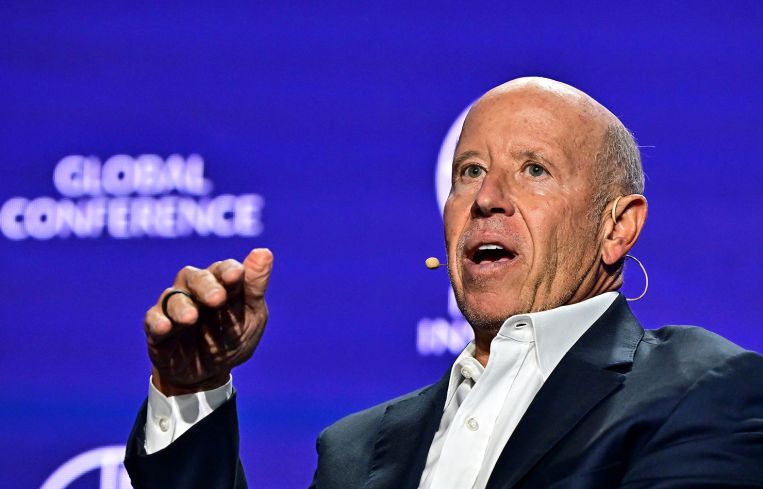Starwood Property Trust’s Net Income Drops 49%, But Firm Remains Flush With Liquidity
Some 62 percent of its new investing is outside of commercial lending
By Brian Pascus August 6, 2024 11:12 am
reprints
Starwood Property Trust reported net income of $77.9 million in the quarter, a 49 percent drop from its net income numbers for the first quarter of 2024, and one that included a nearly $43 million credit loss provision set aside for the threat of impaired assets. The firm’s distributable earnings also declined significantly, falling by $34 million in the quarter to $157.8 million.
Moreover, Starwood’s C-suite noted that it had to foreclose on several commercial real estate properties and downgrade a handful of loans it made to syndicators in the multifamily industry.
The distress forced Starwood to move capital out of CRE, as the firm reported 62 percent of new investing in businesses other than commercial lending, which makes up only 57 percent of Starwood assets, according to CFO Rina Paniry.
“We strategically diversified Starwood Property Trust into investment cylinders other than commercial lending as we saw risk and reward shift,” said Barry Sternlicht, chairman and CEO of Starwood Property Trust. “We think the roughest patch for the property sector globally is behind us, and the U.S. and Europe will be moving into an easing cycle.”
It wasn’t all doom and gloom for Starwood in the second quarter. The firm reported $925 million of new investments in the quarter and reported $1.2 billion of liquidity and $4.5 billion of unencumbered assets.
Starwood’s Paniry reported that in the quarter her firm’s $14.7 billion loan book barely saw an increase in its weighted risk rating, as 97 percent of Starwood’s loans have some form of risk protection in place, and she noted that the firm’s borrowers have invested $2 billion of fresh equity into their assets since the beginning of last year.
Paniry added that Starwood Mortgage Capital completed or priced four securitizations totaling $360 million at profit margins above historic levels, due to spread tightening on the quarter, and that the firm’s special servicing platform LNR increased active servicing by 30 percent to $9.4 billion, its highest level since COVID-19 in 2020.
“The increase was due to $2.5 billion worth of transfers into special servicing, which will contribute to earnings in the future,” she said.
But during the second quarter, Starwood was hampered by several assets that required foreclosure or were downgraded as credit risks.
Starwood downgraded a $46 million multifamily loan in Phoenix and a $57 million multifamily loan in Fort Worth/Dallas. The firm also foreclosed on a $124 million senior mortgage loan secured by a vacant office building in Washington, D.C. (one that is being converted into multifamily), and foreclosed on a $53 million first mortgage and mezzanine loan on a multifamily property in Nashville.
Jeff DiModica, Starwood president and managing director, noted that three of the four loans listed shared the same multifamily syndication sponsor, and said the firm should’ve done more due diligence before extending credit to the sponsor.
“As lenders, we are taught to learn from our mistakes, and we as an industry should’ve been more wary of syndicated equity structures, who would call for capital at times for distress,” said DiModica. “We will be [more wary] going forward.”
During the call, Sternlicht excoriated the Federal Reserve for leaving interest rates high in the face of waning inflation, repeating his mantra that the Fed has been just as late to lower rates as they were to raise rates. Sternlicht emphasized that the price of wheat and corn are where they were in 2016 and 2018, respectively, and added that commercial real estate has experienced most of the unintended consequences of the Fed’s two-and-a-half-year war on inflation.
“We’re going to see a fall of inflation, and you’re going to see that having SOFR [secured overnight financing rate] at 5.3 percent in a world of 2 percent inflation is going to look particularly dumb,” said Sternlicht. “But we’re hoping to see the cracks, and the biggest beneficiary of us will be CRE.”
Sternlicht pointed to the 30 percent increase the firm’s special serving business saw in the quarter, and said that its performance honored the hedge he put on the business when he initially acquired it, prior to the downturn. He also told shareholders that everyone involved in capital markets needs to become “significantly more excited” about investing in assets, as the market is finally correcting itself ahead of a revised forward curve that forecasts lower interest rates.
“In general we feel good about where we sit,” said Sternlicht. “While we have problems in the loan portfolio — there isn’t a lender in the United States that probably doesn’t — we’re on top of them and we’re managing through them.”
“We look forward to coming out on the bright side of this storm,” he added. “I think for the first time we can see the sun and the clouds breaking apart.”
Brian Pascus can be reached at bpascus@commercialobserver.com



